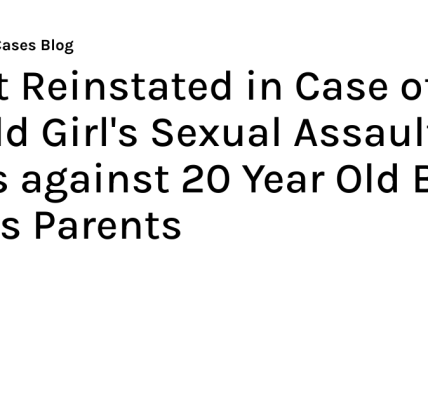My prior post went through the basics of the DNC Lawsuit against Russia, the Trump campaign, Wikileaks, and the individuals affiliated with each of them, specifically:
- Why Now
- Why The Complaint Alleges Those Causes Of Action
- Whether Russia And Its Agents Have “Sovereign Immunity”
- The “Plausibility” Pleading Requirement For The Case To Go Forward
Today we’ll follow up with four big-picture issues:
- The Potential Role Of The U.S. Government
- The Role Of Parallel Criminal Prosecutions
- The First Amendment Issues
- What This Lawsuit Can Actually Accomplish
V. The Potential Role Of The U.S. Government
My prior post talked about the Foreign Sovereign Immunities Act (“FSIA”), which sets out when foreign governments can be sued in United States courts. To sum up that discussion in a sentence, it’s unclear whether Russia (and the GRU and its agents) can be sued at all for hacking the DNC. “Computer network exploitation,” or “CNE,” is far closer to a matter of governmental policy than, say, an employee at the Russian embassy running a red light and hitting a pedestrian, or the Russian embassy ordering a pizza delivery and refusing to pay for it, both of which would clearly fall within the FSIA’s grant of jurisdiction to sue.
This post discusses something different: whether the United States under the Trump Administration can (and might) intervene in the DNC’s lawsuit.
The United States frequently intervenes in lawsuits against foreign governments. As a Congressional Research Service report from 2008 said,
In 1996 Congress amended the Foreign Sovereign Immunities Act (FSIA) to allow U.S. victims of terrorism to sue designated State sponsors of terrorism for their terrorist acts. The courts have handed down large judgments against the terrorist State defendants, generally in default, and successive Administrations have intervened to block the judicial attachment of frozen assets to satisfy judgments.
As one example, in Acree v. Republic of Iraq, 17 American soldiers who were captured and tortured during the 1991 Gulf War sued the Republic of Iraq for compensatory and punitive damages. The United States tried to intervene in the case, the District Court denied the intervention, but the D.C. Circuit reversed, holding “the District Court abused its discretion in finding the United States’ motion to intervene to be untimely and erred in denying that motion. The United States possesses weighty foreign policy interests that are clearly threatened by the entry of judgment for appellees in this case.” Acree, 370 F.3d 41, 43 (D.C. Cir. 2004).
In many ways, our analysis here is far less complicated than in most of the cases, because (a) the DNC does not raise claims relating to terrorism, which have their own statutes and (b) Congress has not passed a statute specific to this situation, which it has done in other lawsuits against foreign governments. The DNC lawsuit instead has a rather straightforward application of Federal Rule of Civil Procedure 24(a), which says:
(a) Intervention of Right. On timely motion, the court must permit anyone to intervene who … claims an interest relating to the property or transaction that is the subject of the action, and is so situated that disposing of the action may as a practical matter impair or impede the movant’s ability to protect its interest, unless existing parties adequately represent that interest.
That was the basis for the United States intervening in Acree. It’s difficult to dispute that the United States has “an interest relating to … the subject of the action,” not least because of the potential effect on diplomatic relations, the existence of multiple governmental investigations into the DNC hack (i.e., the same reports referenced by the DNC’s complaint, as discussed in my prior post), and the ongoing Special Counsel investigation and the indictments already filed. If the United States wants to intervene in the case, it’s hard to see how a court could tell them “no.”
Will the United States intervene? I wouldn’t be surprised if they did, and, if they did, there’s nothing necessarily suspicious about it. As discussed above, the United States has a history of intervening in lawsuits involving foreign governments. (That isn’t to say anything the Trump Administration does with respect to this case is beyond criticism; if, for example, the Administration intervened and took positions that appeared designed more to benefit the Trump campaign than to serve the foreign policy interests of the United States, that would be worth evaluating more closely.)
Attorney General Sessions has recused himself “from any existing or future investigations of any matters related in any way to the campaigns for President of the United States.” Presumably by “investigations” he meant investigations by the Department of Justice, which wouldn’t necessarily apply to intervention in the DNC’s civil suit. However, I hope for everyone’s sake he recuses himself from this issue as well, so that the decision is made by Deputy Attorney General Rosenstein, which would mitigate the appearance of a conflict of interest. Indeed, it’s possible that Special Counsel Mueller files to intervene, on the basis of the on-going investigation. Neither of these actions would suggest anything untoward — they are what we would expect in this situation, regardless of the underlying politics.
Once the United States intervenes, they can raise a host of arguments, from immunity under FSIA to the “political question” doctrine.
If you saw Narcos on Netflix, you might recall the real-life case of Kiki Camarena, a DEA agent abducted, tortured, and murdered by drug cartels — and the DEA’s retaliatory response, which was so aggressive that cartels thereafter refrained from harming DEA agents. Part of that response involved kidnapping, without the permission of the Mexican government, a physician alleged to have participated in the torture and bringing him back to the United States. He was tried, acquitted, then returned to Mexico, after which he brought suit against the DEA and the people involved. I mention his case because of a footnote in the Supreme Court’s opinion dismissing it:
Another possible limitation that we need not apply here is a policy of case-specific deference to the political branches. For example, there are now pending in federal district court several class actions seeking damages from various corporations alleged to have participated in, or abetted, the regime of apartheid that formerly controlled South Africa. The Government of South Africa has said that these cases interfere with the policy embodied by its Truth and Reconciliation Commission, which “deliberately avoided a `victors’ justice’ approach to the crimes of apartheid and chose instead one based on confession and absolution, informed by the principles of reconciliation, reconstruction, reparation and goodwill.” The United States has agreed. In such cases, there is a strong argument that federal courts should give serious weight to the Executive Branch’s view of the case’s impact on foreign policy. Cf. Republic of Austria v. Altmann, 541 U. S. 677, 701-702 (2004) (discussing the State Department’s use of statements of interest in cases involving the Foreign Sovereign Immunities Act of 1976, 28 U. S. C. § 1602 et seq.).
Sosa v. Alvarez-Machain, 542 U.S. 692, 733, Fn 21 (2004)(record citations omitted). The full passage in the case referenced, Altmann, rejected the idea that the courts have to defer to the United States’ interpretation of FSIA, but added:
[S]hould the State Department choose to express its opinion on the implications of exercising jurisdiction over particular petitioners in connection with their alleged conduct, that opinion might well be entitled to deference as the considered judgment of the Executive on a particular question of foreign policy. See, e. g., Verlinden, 461 U. S., at 486; American Ins. Assn. v. Garamendi, 539 U. S. 396, 414 (2003) (discussing the President’s “`vast share of responsibility for the conduct of our foreign relations’”). We express no opinion on the question whether such deference should be granted in cases covered by the FSIA.
Republic of Austria v. Altmann, 541 U. S. 677, 701-702 (2004). As the Supreme Court elaborated in Altmann, “we do not hold, however, that executive intervention could or would trump considered application of the FSIA’s more neutral principles,” and thus the Executive doesn’t have a blank check to stop lawsuits against foreign governments by simply asserting the case could affect foreign policy.
Nonetheless, one of the central issues raised by the DNC’s lawsuit — whether Russia should be held accountable for hacking into the DNC’s servers and then using that information to affect the 2016 election — sounds very much like a “political question.” The “Countering America’s Adversaries Through Sanctions Act” was passed by Congress to impose “sanctions with respect to activities of the Russian Federation undermining cybersecurity,” and it referenced intelligence community findings that “Russian President Vladimir Putin ordered an influence campaign in 2016 aimed at the United States presidential election.”
The decision whether or not to allow the case to continue remains in the power of the federal courts, not the Executive; that’s a basic Marbury v. Madison issue. Nonetheless, the Executive’s views on whether or not the DNC’s lawsuit could impact foreign policy will factor into the District Court’s analysis (and, if it gets there, the Circuit Court’s and potentially the Supreme Court’s analyses).
VI. The Role of Parallel Criminal Prosecutions: Mueller’s Investigation Doesn’t Necessarily Stop The DNC Lawsuit
In general, “The Constitution does not ordinarily require a stay of civil proceedings pending the outcome of criminal proceedings.” Keating v. Office of Thrift Supervision, 45 F.3d 322, 324 (9th Cir. 1995). Yet, as Keating continued, “Nevertheless, a court may decide in its discretion to stay civil proceedings when the interests of justice seem to require such action.” Id. (citations omitted). The Second Circuit Court of Appeals would hear any appeal from the DNC lawsuit, and it has similarly ruled:
The power to stay proceedings is incidental to the power inherent in every court to control the disposition of the causes on its docket with economy of time and effort for itself, for counsel, and for litigants. Courts may defer civil proceedings pending the completion of parallel criminal prosecutions when the interests of justice seem to require such action. Although civil and criminal proceedings covering the same ground may sometimes justify deferring civil proceedings until the criminal proceedings are completed, a court may instead enter an appropriate protective order. How this can best be done calls for the exercise of judgment, which must weigh competing interests and maintain an even balance.
Louis Vuitton Malletier SA v. Ly USA, Inc., 676 F. 3d 83, 97 (2d Cir., 2012). The Second Circuit noted, “so heavy is the defendant’s burden in overcoming a district court’s decision to refrain from entering a stay that the defendants have pointed to only one case in which a district court’s decision to deny a stay was reversed on appeal, and that case was decided more than thirty years ago.” Id. at 100.
My point in raising all this is simple: to show that the court has ample flexibility in deciding whether or not to stay the litigation and wait for the Mueller investigation (and, e.g., the Papadopolous prosecution) to conclude, or to limit the proceedings in some way, or to plow forward with all deliberate speed.
In terms of testimony and the production of documents, five years ago I wrote about “Pleading The Fifth Amendment And Adverse Inferences In Civil Litigation.” Although “taking the Fifth” has tremendous power in criminal prosecutions, the effect on civil litigation is far more limited. As I wrote then,
Although in a criminal procedure, the court must instruct the jury that it cannot draw an inference of guilt from a defendant’s failure to testify about facts relevant to his case, Griffin v. California, 380 U.S. 609 (1965), in civil cases, “the Fifth Amendment does not forbid adverse inferences against parties to civil actions when they refuse to testify in response to probative evidence offered against them.” Baxter v. Palmigiano, 425 U.S. 308, 318 (1976).
Thus, when a defendant’s criminal rights are at stake, the defendant can still choose to “take the Fifth” and avoid testifying or producing documents, but the court and the plaintiffs can use that against them, and can even instruct a jury to use that against them, and to presume that the defendant plead the Fifth to avoid revealing incriminating information.
VII. First Amendment Issues: Most Of The Defendants Have Colorable Free Speech Defenses
Let’s go back to January 27, 2010, when President Obama delivered his State of the Union, which included:
Last week the Supreme Court reversed a century of law that I believe will open the floodgates for special interests –- including foreign corporations –- to spend without limit in our elections. Well I don’t think American elections should be bankrolled by America’s most powerful interests, and worse, by foreign entities. They should be decided by the American people, and that’s why I’m urging Democrats and Republicans to pass a bill that helps to right this wrong.
Obama was referring to the Citizens United opinion. Justice Alito, who was in attendance and who had joined the majority in Citizens United, famously shook his head and mouthed “not true.”
I don’t raise this to re-litigate Citizens United, but to note that the zone of “free speech” surrounding political figures is quite broad under the current precedent. In McDonnell v. U.S., 136 S. Ct. 2355 (2016), for example, the Supreme Court invalidated a corruption conviction in part because:
[T]he Government’s expansive interpretation of “official act” would raise significant constitutional concerns. … [C]onscientious public officials arrange meetings for constituents, contact other officials on their behalf, and include them in events all the time. The basic compact underlying representative government assumes that public officials will hear from their constituents and act appropriately on their concerns — whether it is the union official worried about a plant closing or the homeowners who wonder why it took five days to restore power to their neighborhood after a storm. The Government’s position could cast a pall of potential prosecution over these relationships if the union had given a campaign contribution in the past or the homeowners invited the official to join them on their annual outing to the ballgame. Officials might wonder whether they could respond to even the most commonplace requests for assistance, and citizens with legitimate concerns might shrink from participating in democratic discourse.
The scope of McDonnell is so broad that it effectively ruined the corruption prosecution against Senator Robert Menendez.
There’s of course no First Amendment right to hack into someone’s computer servers and steal information. But what about a political candidate exploiting the fruits of a hack of their opponent? It doesn’t seem like there were any smoking guns contained within the DNC’s files, but it’s hard to deny that they were, at least to some extent, matters of “public interest.” That gets us into far more complicated territory. We don’t have enough facts yet to develop these arguments, but it’s likely everyone associated with the Trump campaign will raise a free speech defense to some, potentially all, of the allegations.
A similar analysis applies to Wikileaks. Media outlets frequently utilize materials that obviously came to them from unlawful activity of some sort, like the Panama Papers, which changed the political landscape world-wide for the better. At some point, a media outlet’s advance cooperation with hackers might subject them to joint liability for the unlawful conduct — but, as of yet, it does not appear there is any publicly-available evidence suggesting Wikileaks coordinated the hack with Russia or its GRU intelligence unit.
The disclosed communications reveal Wikileaks was hardly a neutral or objective player in its use of the DNC’s documents, and that it sought specifically to boost the Trump campaign, but “neutral” and “objective” aren’t the standard for free speech protections. To the contrary, courts tend to avoid looking at the viewpoint advanced by the speaker, and instead look to the overall nature of the conduct. “The First Amendment forbids the government to regulate speech in ways that favor some viewpoints or ideas at the expense of others.” Lamb’s Chapel v. Center Moriches Union Free School Dist., 508 U.S. 384, 394 (1993).
VIII. What Can This Lawsuit Actually Accomplish?
As I mentioned in my first post, it seems to me the DNC’s lawsuit was prompted by a simple fact: the statute of limitations for their claims was about to run. (Specifically, the statute of limitations for the Computer Fraud & Abuse Act and Stored Communications Act claims.) It was now or never, and the DNC made the decision to file it now rather than lose their right to ever file it.
So, what’s next? In my humble opinion, the DNC has solid CFAA and SCA claims against Russia, Russia’s GRU, and any hackers it can personally identify. The DNI investigation into Russia’s efforts to influence the election, the DHS/FBI investigation into “Grizzly Steppe,” and the CrowdStrike investigation into the DNC hack provide more than enough for a “plausible” claim that should survive a motion to dismiss.
But that’s just about all the DNC has going for it – even for those claims, pursuing them now walks right into Russia’s FSIA defense (and potential intervention by the United States), and if Russia and its agents are dismissed early, the rest of the case will likely fall apart completely, because Russia’s role in the alleged facts is likely so central that the other parties cannot be held liable without them. Moreover, the current facts against the other parties are weak. As a political matter, there is a lot that can be drawn from what we know about the contacts between the Trump campaign, Wikileaks, and Russia, but as a legal matter it is hard to see how the non-Russia parties can be held liable for anything on the existing record. It is likely in the DNC’s best interest to wait for the Mueller investigation to continue producing something, be it more indictments or a report that is made public or something else that can help bolster their allegations.
If I represented the DNC, I’d probably upfront admit the statute of limitations issue to the court and ask the court to stay all of the proceedings until, at the earliest, the Special Counsel investigation either concluded or at least indicated that it had finished its work relating to the Trump campaign. Whether they do that, and whether the court would grant it, is another matter.






